#CriminalJusticeSystem
Text

Post: ‘Thought They’d See My Leg’: Chicago Black Man, Physically Unable to Commit Murder for Which... https://www.blaqsbi.com/5POI
0 notes
Text
Inside Russia's Arctic Prison: Alexei Navalny's Fight for Justice
#AlexeiNavalny #Arcticprison #corruption #criminaljusticesystem #dangerouscriminals #harshconditions #humanrightsabuses #isolation #limitedaccesstomedicalcare #maximumsecurityfacility #overcrowdedcells #physicalabuse #PolarWolf #politicalprisoners #poorsanitation #PresidentVladimirPutinsregime #prisonsystem #protectinghumanrights #psychologicalabuse #Russianoppositionleader #treatmentofprisoners
#Politics#AlexeiNavalny#Arcticprison#corruption#criminaljusticesystem#dangerouscriminals#harshconditions#humanrightsabuses#isolation#limitedaccesstomedicalcare#maximumsecurityfacility#overcrowdedcells#physicalabuse#PolarWolf#politicalprisoners#poorsanitation#PresidentVladimirPutinsregime#prisonsystem#protectinghumanrights#psychologicalabuse#Russianoppositionleader#treatmentofprisoners
0 notes
Text
The Complex Psychology Behind the UK Criminal Justice System
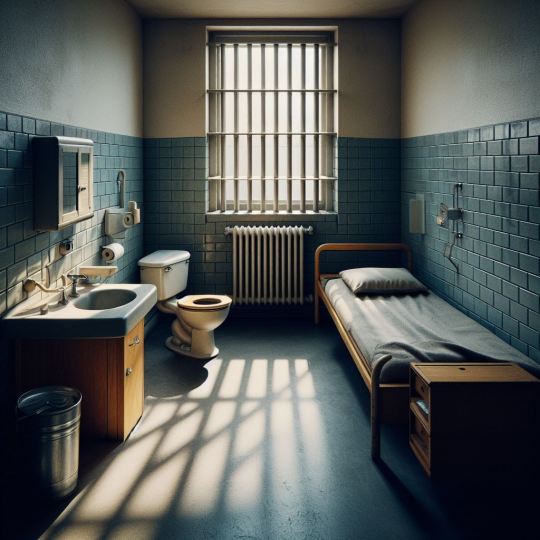
The criminal justice system is a vital pillar of society, aimed at maintaining law and order while rehabilitating and punishing wrongdoers. Behind this system lies a maze of intricate psychological factors, influencing everything from police decision-making to judicial sentencing. In the United Kingdom, understanding the psychology of the criminal justice system is essential to drive meaningful reforms and ensure a fair and just society. This blog post delves into the psychology that underpins key aspects of the UK criminal justice system, shedding light on its strengths and potential areas for improvement.
Read the full article
0 notes
Text
Transforming the UK Criminal Justice System: Empowering Youth and Driving Long-Term Reforms
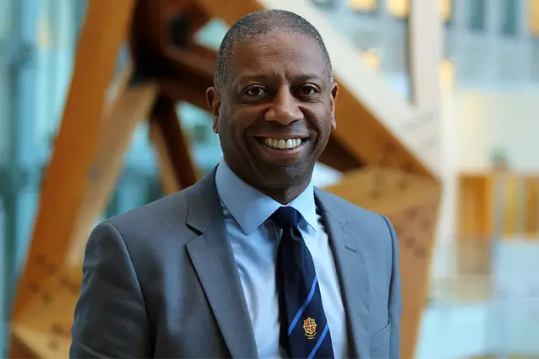
Achievements
I’d like to pay my own tribute to these achievements before I go on to talk about some of the challenges we’re facing and what the future might look like for youth justice.
First of all, we’ve heard from other about the strength of the partnership, and that is absolutely right. Whether you call it the ‘jewel in the crown’ like Lord McNally or the ‘critical beauty’ like Charlie Taylor, multi-disciplinary teams are the backbone of the success of youth justice services and I am 100% committed to protecting and encouraging that element.
I know we’re still a way off but I am really excited by the opportunity to use new KPIs to hold partners to account and ensure the children and communities you’re supporting have the benefit of each partner’s expertise and resources.
Although we can all recognise that we could always do more with more money, we should acknowledge that this time last year government announced £300m being invested over three years in youth justice. It was described as the largest youth justice funding boost in a generation.
At a time when there are a great number of areas in need of funds, we can be proud that youth justice has successfully made the case for investment.
Part of that investment, of course, has meant vast changes to the YJB’s operating model to provide the level of performance oversight that is demanded of such an investment in services, and I would like to thank you for your patience and support of our change programme so far.

The scales of justice. Photo by James Cridland. Flickr.
So onto the numbers…
In the latest annual figures, around 8000 children entered the criminal justice system for the first time. This is more than 100,000 fewer children than 2006, where the highest first-time entrant figure was recorded.
It’s not possible to accurately predict what these number would look like without that drive to keep children out of the system. Very crudely (and certainly not with the approval of our stats team) one could argue that if rates continued at 2006 levels there would be up to 1.2million more first-time entrants in the system.
Custodial sentences have seen an equally impressive reduction – going from 7,485 to 553 over 20 years. I was pleased to hear many of the previous Chairs highlight this achievement as one to be proud of.
We all know the custodial estate in its current form is not the right place for complex, traumatised children to heal, change and develop a pro-social identity and it’s in the face of this realisation that this reduction is all the more important.
Again, it’s not possible to apply the ‘what-if’ comparison accurately, but I think what we can say for sure is that there are many more children, and adults, in our communities today who are doing amazing things and reaching their potential because they were not held back by a criminal record, or traumatised by time in prison, or stigmatised by a court appearance, and, perhaps for the first time, they had a caring adult ensure they had the support they so desperately needed. And much of that success is down to many of you in the room. Thank you.
The final two of the system indicators that we have been using up until now look at reoffending.
We have 15 years of data in this area and as you can see, reoffending rates and frequency rates haven’t dropped in the same way as first time entrants and custodial sentences.
As the number of first-time entrants has rightly reduced, we all recognise that the statutory caseload for youth justice services is made up of children whose needs and backgrounds are almost always incredibly complex and require long term support.
The future
So, given all these achievements over the last 25 years, what does the future look like?
Over the next few years there are some key milestones and challenges for us to be aware of:
Central government policy decisions
We know there will be an election at some point in the next two years. For those of you who have been following politics and justice for as long as I have you will know that there are many pressures to side-line the evidence of what works in favour of more short-term and potentially punitive approaches which can more quickly appease public anxiety but that don’t actually solve the issue. This is something I hope we will all work together to guard against.
The government will need to respond to the latest report from the United Nation’s Committee on the Rights of the Child. I don’t think this government is willing to move on the age of criminal responsibility but there are areas where there is an appetite and progress is already being made, such as around early intervention.
When questioned last week by YJB senior leaders on the use of prevention and diversion I was pleased to hear the Lord Chancellor’s response which said we must continue to support and divert children, be led by the evidence and data as, in his works, ‘there is treasure in the heart of every child’.
Another big decision that will need to surface again is the grant funding formula. The YJB is still committed to change and a fairer system of funding which directs funding to those children and communities that need it most, and we will continue to raise the need to revisit this in subsequent financial years.
Another area where policy will have ramifications for the immediate and longer-term future is around the transition to young adulthood. For many years the evidence has been clear on brain maturity and the argument for a more bespoke system for young adults has been made, but it is not for that reason entirely that we have seen an increase in 18-year-olds reach the caseload of youth justice services (YJSs).
As the prison population swells, I am aware of the pressure that is being leaked into the youth secure estate and onto YJSs. This is, of course, exacerbated by probation service recruitment issues. You will soon receive a letter which outlines these issues and what the probation service is doing to improve the situation.
We should remain unapologetic about our focus on the needs of children, so while there are challenges in the rest of the system, our role is to push for the best outcomes for children.
As always, we’d welcome the views of services on what a long term and realistic solution looks like to probation support.
We are already seeing the effects of the police uplift, not that there are simply more officers, but also the reality of the challenge of having a less experienced police service where a third of officers have less than 5 years of service.
In some areas we are concerned that this may lead to more children being drawn into the youth justice system. In itself, this will not improve community safety and may, in the longer term, be ineffective as we know that children who become involved in the criminal justice system are more likely to commit offences as adults.
From my own experience, there are some positives to having new officers, such as fresh ideas and perspectives, but at this volume it can make prioritising prevention and diversion a bigger challenge so we need to think carefully about how we support the police to use the evidence we have about what works in youth justice, so they use their additional resources in a smart way, whilst balancing protecting the public.
In conjunction with this we also have longer sentences available through the PCSC Act and court backlogs being worked through which point towards more children in the system and in custody.

Labour Youth with Joan Burton following her election as Labour Party Leader. Photo by Labour Youth. Flickr.
Local / regional decisions
There are also decisions being grappled with outside of central government which will have wide ranging ramifications for the shape of the system
The Commission on the UK’s Future, commissioned by Labour, recommends that, if in power, Labour should grant new powers to the Senedd and Welsh Governments, including embarking upon new powers over youth justice and the probation service.
Localism continues to offer opportunities to make more economic decisions locally and discussions around regional delegation in areas like Manchester and the West Midlands provide us with both risks and opportunities to consider.
As local authorities struggle to balance budgets against rising costs, I’m sure many will consider which services could be integrated to save costs.
I am in no way opposed to children’s services and youth justice being intertwined, in fact, we all know that seamless partnership is important for many reasons, but youth justice is a necessary specialism with skills that are not ubiquitous in children’s services. And I would strongly guard against integration on the basis of cost saving alone.
Workforce challenges, although perhaps enviable to the challenges in adult probation, should not be played down.
Youth justice has benefited greatly from the corporate knowledge of those who have dedicated many years to the cause and we should be thinking about the effects of some of those leaders coming up to retirement alongside how we maintain a pipeline of staff of all different levels and backgrounds into the profession.
And, we must ensure we have diversity at the top, in particular ensuring talented Black and ethnic minority staff are being supported to reach their potential within our organisations.
Evidence and data
On data first of all, there has been a huge shift in the data we are asking youth justice services to collect. It recognises the need to have more data on the breadth of work you are doing to prevent and divert children from the system and also the need to understand how the full partnership is or isn’t contributing to children’s outcomes.
As first-time entrant figures inevitably plateau, we have a challenge to find other ways of communicating the success of the system. I’m confident that KPIs should help with that and also allow us to demand the presence of all partners around the table
On evidence, firstly I would like to make the firm commitment that the YJB will continue to be an organisation which is led by evidence. We are currently reviewing our strategy and the evidence base of what works, or Child First if you prefer that label, will continue to be the driving factor.
I would also like us to go further with the evidence. When it comes to research and evidence, especially in the realm of over-representation, there is a saturation of papers or studies or headlines which describe to us that there is a problem.
We know there is a problem. There has been a problem – the same problem – for decades.
We must not complacent and think that we fully understand the problem. But, the next step for us must be understanding what works to reduce and eliminate that over-representation so we can take action that really makes a difference.
The other priority for the system is defining how we measure positive outcomes. If we are to follow strengths-based approaches in our practice, we must be better at measuring based on strengths and positive outcomes.
That’s not to say we ignore the data that tells us things are going wrong, but that we also consider a shift in identity or a growing confidence.
Wider concerns and room for change
In addition to priorities around evidence and challenges in the unknowns of decision making I’d also like to raise concerns in four areas.
Firstly, there is huge scope for improvement within our court system for children and we’ll be looking more closely at what longer term strategic and system reforms to better meet the needs of the 10-18 age group might look like.
We’ll be looking at that as part of this year’s business plan. We’ll then have the much harder task of influencing to make those changes happen.
Secondly, policing. We will continue to support the child-centred policing approach and will focus mainly on the three areas of work identified by last year’s work with children and stakeholders. They are: police in schools, the use of out of court disposals and the detention of children.
Thirdly, education. There is a clear role for education in prevention and we remain concerned about children missing, being excluded from education, or being electively home educated as well as the system’s ability to meet the needs of children with special educational needs and disabilities.
And lastly, we have significant concerns with serious violence and the exploitation of children. Growing inequality, poverty, rising costs of living, the influence of social media and a health service under pressure all contribute to my fears that exploitation and serious violence will remain intractable issues.
We will work with YJS as well as other key partners like the Youth Endowment Fund, Police and Crime Commissioners and Violence Reduction Units to ensure we’re collectively tackling the issues and following the evidence and in particular we’re looking closely at the serious violence duty and the new local serious violence boards.
We’re currently working on our next three-year strategy and as part of that we are giving thought to what the system is achieving now, what works well and what need to be prioritise to see another 25 years progress for children. So I’ve been considering what my own thoughts are and…
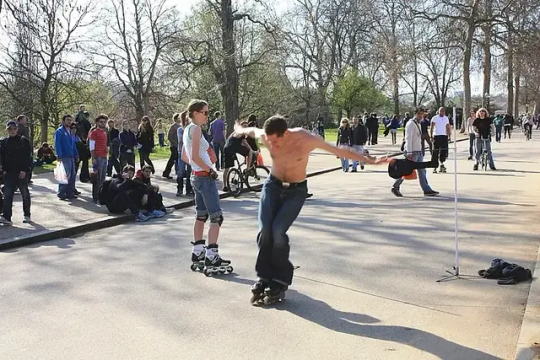
London, Hyde Park skating sports. Photo by Jaanus Silla. Flickr.
What are the longer-term trends I want to see?
- A full and total acceptance of the evidence
- A continued focus on early intervention and supporting evidence-based prevention and diversion projects, like the ground-breaking initiatives such as Levelling the Playing Field, which use the power of sport and physical activity to tackle over-representation of ethnic minority children in the justice system. I am keen to see the findings of this three-year evidence initiative.
- Real alternatives to custody, especially for children held on remand, and we are all rooting for the London Accommodation Pathfinder to successfully pilot its innovative approach
- The secure school absolutely has my best wishes and of course we all hope that it works for the children held there. I would like to see the model go further and faster to follow more closely what we know works – local, small units built around care and family values.
- Diversity of thought and experience throughout our workforce
- Smarter use of technology and a sector braced and ready for the impact of artificial intelligence on both us and the children we support
- Children must, of course, take responsibility for their actions and learn and grow, but they should not face a lifetime of stigma. We must change the life-long judgement that is made about the character of children who commit crime, in particular for Black children who are so often wrongly treated as adults.
I could go on for a long time about my hopes for the system, but I think best to leave you with those priorities and a parting thought.
99.6% of children do not become involved in the criminal justice system. Children are inherently curious, imaginative, and full of potential. For those who do reach our doors, we as a group, more than any, understand that it is adult failure that has led them to us.
You are often the leaders who break that pattern, who show up, who can be trusted, who have their best interests at heart but without the might of the police, health, probation, etc. behind you your task is not achievable.
I want to empower you to have the difficult conversations with those who are not showing up for these children. You have my support to demand more on behalf of your services and the communities you protect and the children you are working so hard to support.
Please do not shy away from making those demands. Their involvement was made clear in the crime and disorder act 25 years ago and it remains law today. You have my full backing.
Thank you for everything you do and thank you for listening.
Sources: THX News, Youth Justice Board for England and Wales & Keith Fraser
Read the full article
#Achievements#Centralgovernmentpolicydecisions#Criminaljusticesystem#Custodialsentences#Evidenceanddata#Fundingboost#Longtermstrategicreforms#Reoffendingrates#Transitiontoyoungadulthood#Youthjusticeservices
0 notes
Text
Probation in West Palm Beach: A Road to Recovery

Article Summary:
Probation is a crucial aspect of the criminal justice system, providing an alternative to incarceration for those convicted of a crime.
There are several types of probation, including standard, intensive, and house arrest.
Probation offers benefits such as reducing prison populations, allowing individuals to maintain employment, and providing access to rehabilitative services.
Violating probation conditions can lead to severe consequences, including extended probation, additional fines, or incarceration.
A West Palm Beach criminal attorney can help individuals navigate the complexities of probation and advocate for their rights in court.
Introduction: A Look at Probation in the Criminal Justice System
Probation is a crucial aspect of the criminal justice system that often goes unnoticed. As a West Palm Beach criminal attorney, I am familiar with the ins and outs of probation and how it can affect the lives of individuals convicted of a crime. In this article, we'll explore the role of probation in West Palm Beach, why it's essential, and how it works. By the end of this article, you should better understand probation and its significance in the criminal justice system.
Understanding Probation: The Basics
Probation is a legal process that allows individuals who have been convicted of a crime to serve their sentences under the supervision of a probation officer. It is an alternative to incarceration and is designed to help individuals reintegrate into society while still being held accountable for their actions. There are several types of probation, including:
Standard probation, which is the most common type and involves routine supervision by a probation officer.
Intensive probation requires more frequent check-ins and a higher level of supervision.
House arrest confines an individual to their home and may involve electronic monitoring.
The Benefits of Probation: Why It's Important
Probation serves several vital functions within the criminal justice system. Some of the key benefits include:
Reducing the prison population can help alleviate overcrowding and save taxpayer dollars.
Allowing individuals to maintain employment can reduce the likelihood of reoffending.
Providing access to rehabilitative services, such as drug and alcohol treatment programs, mental health counseling, and vocational training.
Offering an opportunity for individuals to prove they can become productive members of society.
Probation Violations: What Happens When Conditions Are Not Met
When an individual is placed on probation, they must adhere to a set of specific conditions. These conditions can vary but often include the following:
Regular meetings with a probation officer
Participation in court-ordered treatment programs
Drug and alcohol testing
Compliance with curfew or other restrictions
If an individual fails to meet the conditions of their probation, they may face additional consequences, such as extended probation, additional fines, or even incarceration.
The Role of a West Palm Beach Criminal Attorney in Probation Cases
As a criminal attorney in West Palm Beach, my role is to help individuals navigate the complexities of the criminal justice system, including probation. I can assist with negotiating the terms of probation, ensuring that my clients understand and comply with the conditions, and advocating for their rights in court.
FAQ:
Q: What is the difference between probation and parole? A: Probation is a sentencing alternative to incarceration, while parole is a conditional release from prison after serving a portion of a sentence.
Q: How long does probation typically last? A: Probation lengths vary depending on the severity of the offense and the individual's criminal history but generally range from one to three years.
Q: Can probation be terminated early? A: Yes, in some cases, an individual may petition the court for early termination of probation if they have successfully complied with the conditions and demonstrated significant progress.
Q: What happens if I violate my probation? A: Violating probation can result in serious consequences, including extended probation, additional fines, or incarceration. It's essential to consult with a West Palm Beach criminal attorney if you're facing probation violation allegations.
Q: Can a West Palm Beach criminal attorney help me if I'm facing a probation violation? A: Yes, a criminal attorney in West Palm Beach can help you navigate the complexities of probation violation cases and advocate for your rights in court. It's crucial to have experienced legal representation to ensure the best possible outcome.
#ProbationWestPalmBeach#CriminalAttorney#ProbationViolations#AlternativeSentencing#ProbationBenefits#CriminalJusticeSystem
0 notes
Text
The Attorney General and State Government: A Guide to Their Role
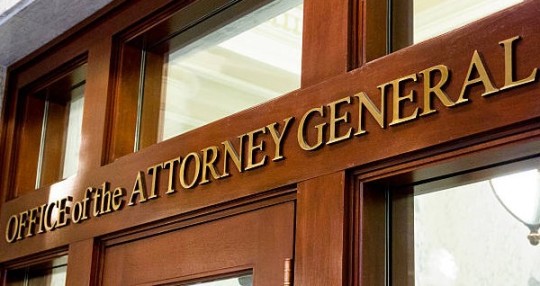
POLawyer - State governments in the United States have a legal system that differs from federal law. The Attorney General plays a significant role in state government, including upholding the state's constitution, representing the state in legal matters, and ensuring public safety.
Understanding the Attorney General's role in state government is essential for citizens, law enforcement officials, and policymakers. We will explore the responsibilities of the Attorney General and the role of state government in legal matters.
What is the Attorney General?
The Attorney General is the chief legal officer of the state government. The Attorney General represents the state in legal matters, provides legal advice to state officials, and enforces the state's laws.
See Also : Attorney for Workers Comp: What You Need to Know
The Attorney General's office is often referred to as the "people's lawyer" because they represent the state and its citizens in legal matters.
Role of the Attorney General
Upholding State Constitution
The Attorney General is responsible for upholding the state's constitution. This includes protecting the rights of the citizens and ensuring that the state's laws do not violate the constitution.
The Attorney Generals also reviews proposed legislation to ensure it complies with the constitution.
Representing the State in Legal Matters
The Attorney General represents the state in legal matters. This includes defending the state in lawsuits and initiating legal action on behalf of the state.
The Attorney General also provides legal advice to state officials and agencies.
Ensuring Public Safety
The Attorney General is responsible for ensuring public safety. This includes prosecuting crimes and investigating criminal activity.
Read More : Slip and Fall Lawyer: What You Need to Know
The Attorneys General also works with law enforcement officials to prevent crime and protect citizens from harm.
Selection and Appointment of the Attorney General
The selection and appointment of the Attorneys General varies from state to state. In some states, the Attorney Generals is elected by the people, while in other states, the Attorney General is appointed by the governor or state legislature. The term of the Attorney General also varies from state to state.
Attorney General and Criminal Justice System
Prosecution
The Attorney General is responsible for prosecuting crimes committed within the state.
This includes working with local law enforcement agencies to investigate crimes and bring charges against suspects.
Read More : The Importance of Lawyer Reviews: Building and Maintaining a Strong Online Presence
The Attorneys General also works with the state's court system to prosecute cases and secure convictions.
Investigation
The Attorney General's office has the authority to investigate criminal activity. This includes conducting investigations into organized crime, corruption, and other criminal activity.
Juvenile Justice
The Attorney Generals is responsible for overseeing the state's juvenile justice system.
This includes prosecuting juvenile offenders and working with the courts to provide rehabilitation and treatment to juvenile offenders.
Role of State Government in Legal Matters
State Sovereignty
State governments have a level of sovereignty that allows them to enact state laws and regulations that are specific to their state.
Related : What Does the Attorney General Do?
This means that state laws can vary significantly from federal laws, and the state's Attorney General is responsible for enforcing these laws within their state's borders.
State Laws
State laws cover a wide range of areas, including criminal law, civil law, and family law.
The Attorney General's office is responsible for enforcing these laws and ensuring that they are upheld within the state.
This includes working with state agencies to enforce regulations and prosecuting individuals or companies that violate state laws.
Dont Miss : How to Choose the Right Estate Planning Attorney for Your Needs
The role of the Attorney Generals and state government in legal matters is essential for upholding the rule of law and ensuring public safety.
The Attorney Generals is responsible for representing the state in legal matters, upholding the state's constitution, and ensuring that state laws are enforced.
Understanding the role of the Attorneys General and state government is crucial for citizens, law enforcement officials, and policymakers.
FAQs
- What is the role of the Attorneys General in state government?
The Attorney General is responsible for representing the state in legal matters, upholding the state's constitution, and ensuring public safety.
- How is the Attorney Generals selected and appointed?
The selection and appointment of the Attorneys General varies from state to state. In some states, the Attorneys General is elected by the people, while in other states, the Attorney Generals is appointed by the governor or state legislature.
- What is the role of the state government in legal matters?
State governments have a level of sovereignty that allows them to enact state laws and regulations that are specific to their state. The state's Attorneys General is responsible for enforcing these laws within their state's borders.
- What areas of law do state laws cover?
State laws cover a wide range of areas, including criminal law, civil law, and family law.
- Why is understanding the role of the Attorneys General and state government important? Understanding the role of the Attorneys General and state government is crucial for upholding the rule of law and ensuring public safety. It is essential for citizens, law enforcement officials, and policymakers to understand how the legal system works in their state.
Read the full article
#and#attorney#AttorneyGeneral#AttorneyGenerals#attorneys#AttorneysGeneral#CriminalJusticeSystem#general#government:#guide#news#role#state#the#their
1 note
·
View note
Link
#bail#CriminalJusticeSystem#financialsupport#livingconditions#overcrowding#prisons#reformation#rehabilitation#undertrials
1 note
·
View note
Text
The benefits of mindfulness in the criminal justice system
Introduction
Mindfulness is a relatively new concept in the criminal justice system, but it has been gaining traction in recent years. It is a way of using meditation and other mental exercises to increase focus and awareness of one's thoughts, feelings, and environment. It can help reduce stress, anxiety, and even aggression. Mindfulness has been used in prisons, courts, and police departments in an effort to reduce recidivism rates, improve the mental health of inmates, and create a more peaceful atmosphere in the criminal justice system.
What is Mindfulness?
Mindfulness is a practice of being present in the moment and aware of one's thoughts, feelings, and environment. It is based on the idea that by being present and aware, one can gain clarity, reduce stress, and cultivate a sense of calm. Mindfulness is usually practiced through meditation, breathing exercises, and other mental exercises. It has become increasingly popular in the criminal justice system as a way to reduce recidivism rates, improve the mental health of inmates, and create a more peaceful atmosphere.
Benefits of Mindfulness
The benefits of mindfulness in the criminal justice system are numerous. It can help reduce stress and anxiety in inmates, as well as increase their focus and awareness. Mindfulness can also help inmates learn to cope with difficult emotions, such as anger and fear, in a healthy way.
Mindfulness can also help reduce recidivism rates. Studies have found that inmates who practice mindfulness are less likely to reoffend than those who do not. This is likely due to the fact that mindfulness can help inmates develop a greater sense of self-awareness and self-control, which can lead to better decision-making.
In addition, mindfulness can help create a more peaceful atmosphere in the criminal justice system. By reducing stress, anxiety, and aggression, mindfulness can help create an environment that is more conducive to rehabilitation and healing.
Mindfulness in Practice
Mindfulness is being practiced in prisons, courts, and police departments across the country. In prisons, mindfulness practices are typically incorporated into group therapy sessions and individual counseling sessions. In courts, mindfulness can be used to help reduce stress and anxiety in those who are waiting for their case to be heard. In police departments, mindfulness can be used to help officers manage stress and stay focused on their duties.
Conclusion
Mindfulness has become increasingly popular in the criminal justice system in recent years. It is a way of using meditation and other mental exercises to increase focus and awareness of one's thoughts, feelings, and environment. It can help reduce stress, anxiety, and even aggression. Mindfulness has been used in prisons, courts, and police departments in an effort to reduce recidivism rates, improve the mental health of inmates, and create a more peaceful atmosphere in the criminal justice system. The benefits of mindfulness in the criminal justice system are numerous, and its practice is becoming more widespread as its effectiveness is realized.
#Mindfulness#CriminalJusticeSystem#Meditation#MentalExercises#ReduceStress#ReduceRecidivism#ImproveMentalHealth#PeacefulAtmosphere#ReduceAnxiety#ReduceAggression#CopeDifficultEmotions#SelfAwareness#SelfControl#Rehabilitation#Healing#GroupTherapy#IndividualCounseling#PoliceDepartments#ManageStress#IncreasedFocus#IncreasedAwareness
0 notes
Text
Schwartz: Dreams from the Monster Factory: A Tale of Prison, Redemption, and One Woman's Fight to Restore Justice to All
#accountability#authorinterview#book#coc#conversationsonthecoast#criminaljusticesystem#criminology#dreamsfromthemonsterfactory#jail#jimfoster#penology#prisons#reading#rehabilitation#resolvetostopviolenceproject#restorativejustice#rsvp#sanfrancisco#sf#violence
0 notes
Text
Locked Away: Kidnappers' Response to Life Sentences
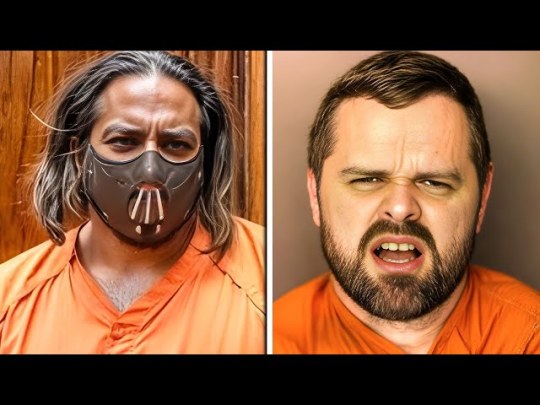
Kidnapping is a heinous crime that leaves lasting scars on victims and their families. When kidnappers are caught and sentenced to life imprisonment, it raises questions about their psychological state and how they grapple with the consequences of their actions. In this article, we delve into the minds of kidnappers to understand their reactions to life sentences and the impact it has on their lives. See More.....
#CourtCrime#JusticeServed#KidnapperSentenced#LifeBehindBars#CriminalJustice#PrisonBound#KidnapperReaction#LifeSentenceShock#LegalPunishment#CrimeConsequences#CriminalJusticeSystem#kidnappers#life#crime#justice#prison#true#criminals#legal#trial#court#sentencing#law#criminal#criminal#criminal#justice#serious#life#felony#long
0 notes
Text
Tweeted
Participants needed for online survey! Topic: "The UK Public Perception of Crime Suspects" https://t.co/wnS9PqiE34 via @SurveyCircle #psychology #ForensicPsychology #crime #CriminalJusticeSystem #CrimeSuspects #survey #surveycircle https://t.co/1VYOXfuYQD
— Daily Research @SurveyCircle (@daily_research) Apr 25, 2023
0 notes
Text
Police Officer Refuses to Testify, Sparks Debate on Justice System
#abandoningduties #administrationofjustice #caughtonvideo #charges #communitysafe #criminaljusticesystem #debate #difficultcircumstances #disciplinaryaction #dismissalofcases #failuretodotheirjob #Justice #personalattack #policedepartment #policeofficer #policeunion #publicsafety #reforms #roleofpolitics #Support #tension #topprosecutor #trackrecordofconvictions #undermineauthority
#Politics#abandoningduties#administrationofjustice#caughtonvideo#charges#communitysafe#criminaljusticesystem#debate#difficultcircumstances#disciplinaryaction#dismissalofcases#failuretodotheirjob#Justice#personalattack#policedepartment#policeofficer#policeunion#publicsafety#reforms#roleofpolitics#Support#tension#topprosecutor#trackrecordofconvictions#undermineauthority
0 notes
Text
https://www.tiktok.com/t/ZTRnrTLvA/
February 23, 2023 I would have been eligible for retirement from the Central Intelligence Agency (CIA) #blackHistorymonth #BHM
#Reposted from @democracynow #CIA #whistleblower #JeffreySterling was convicted in "a travesty of a trial" for violating the #EspionageAct & spent 2.5 years in #prison His #book #UnwantedSpy ... #JulianAssange has no chance. "Closed Letter: Racism in the CIA" Closed Letter: Racism in the CIA https://open.spotify.com/album/1FOzc2OFpliaK6KAuDZkJJ available in all digital music streaming services! #theespionageact #racism #blackjobsmatter #blacklivesmatter #blm #whiteprivilege #eeoc #finaldecision #appeal #reconsideration #warcrimes #whistleblower #classifieddocuments #fairhearing #criminaljusticesystem #jail #federalprison #doingtime #intelligence #intelligencecommunity #edsnowden
1 note
·
View note
Photo

What is wrong with our Criminal Justice System?
Criminal Justice is a system comprising of institutions, policies and customs which involves the study of criminal behavior and laws which if broken, have consequences which are enforced through the system. The criminal justice system is designed to deliver “justice”. It deals with all aspect of a crime from the time the crime is committed right up until the criminal is found guilty and sent to prison. Laws are made and enforced to maintain order, protect human rights and freedoms, and instill justice. The system should function in a way that is effective and reliable. However, the many ethical issues that frequently occur has caused the system to not be as effective as should be. Consequently, many people have loss trust in the system and constantly scrutinize the criminal justice system emphasizing why it is not as effective as it ought to be. As such, I intend to discuss some ethical issues that are present within the system that hinders the true success of the system.
1 note
·
View note
Photo

Just casually reading my text book this morning to refresh my memory so I can work on the latest assignment when I came across this mind-boggling fact. America must really love their donkeys...#everdayisaschoolday #weirdfacts #criminaljusticesystem #wheresthejustice (at Witney, Oxfordshire) https://www.instagram.com/p/CMEkdIUnOQA/?igshid=4kd5bcdof7dq
1 note
·
View note
Photo

Reposted from @theantiaxiom - The rest of the world can see there's a problem why can't the US. #policemisconduct #policebrutality #blacklivesmatter #blm #justice #civilrights #rights #prisonindustrialcomplex #peopleoverprofit #privateprisons #massincarceration #policeforprofit #stopandfrisk #13amendment #criminaljusticesystem #lawenforcement #racialprofiling #watchthepolice #cops #police #policestate #filmthepolice #thinblueline #slavery #incarceration #resist #resistance #fixtherealproblem RP @nexus63589 https://www.instagram.com/p/BxHjthZHoRhmBheSlV9-zOa58lGxi1ZCCH0N0Q0/?utm_source=ig_tumblr_share&igshid=1rd3ho4887n6d
#policemisconduct#policebrutality#blacklivesmatter#blm#justice#civilrights#rights#prisonindustrialcomplex#peopleoverprofit#privateprisons#massincarceration#policeforprofit#stopandfrisk#13amendment#criminaljusticesystem#lawenforcement#racialprofiling#watchthepolice#cops#police#policestate#filmthepolice#thinblueline#slavery#incarceration#resist#resistance#fixtherealproblem
5 notes
·
View notes